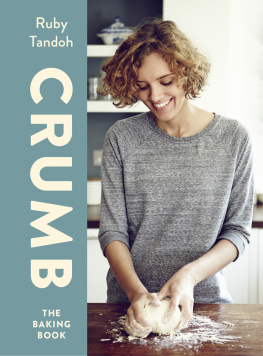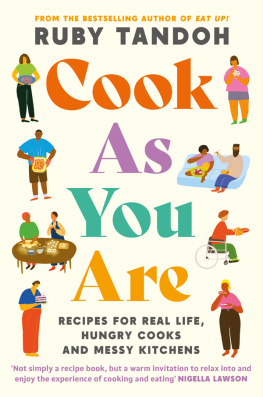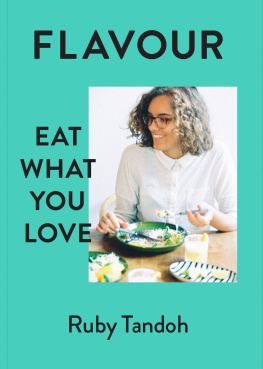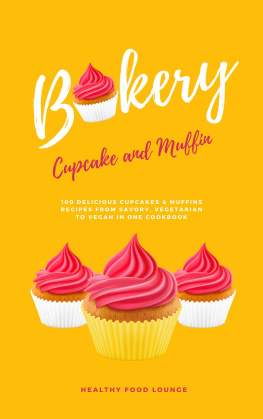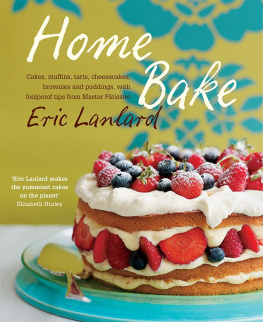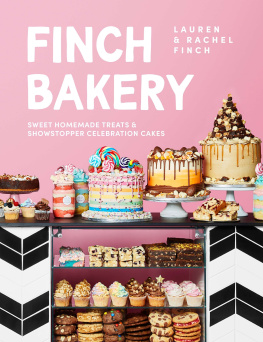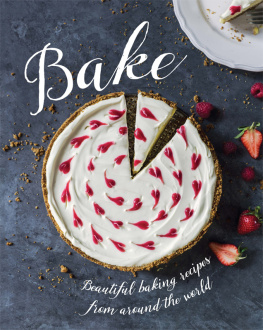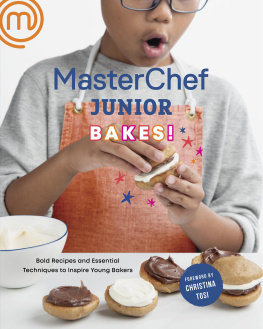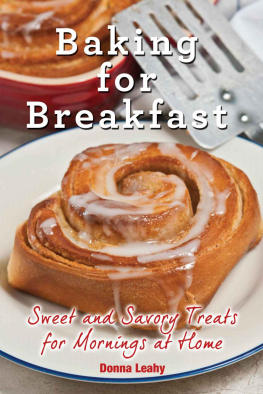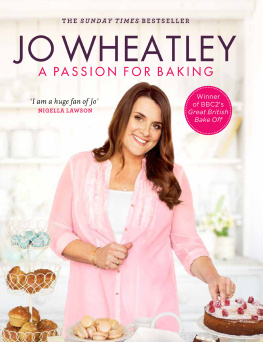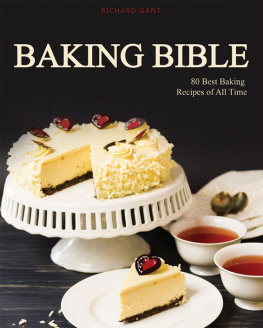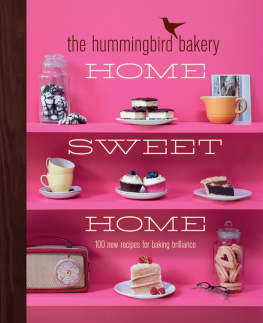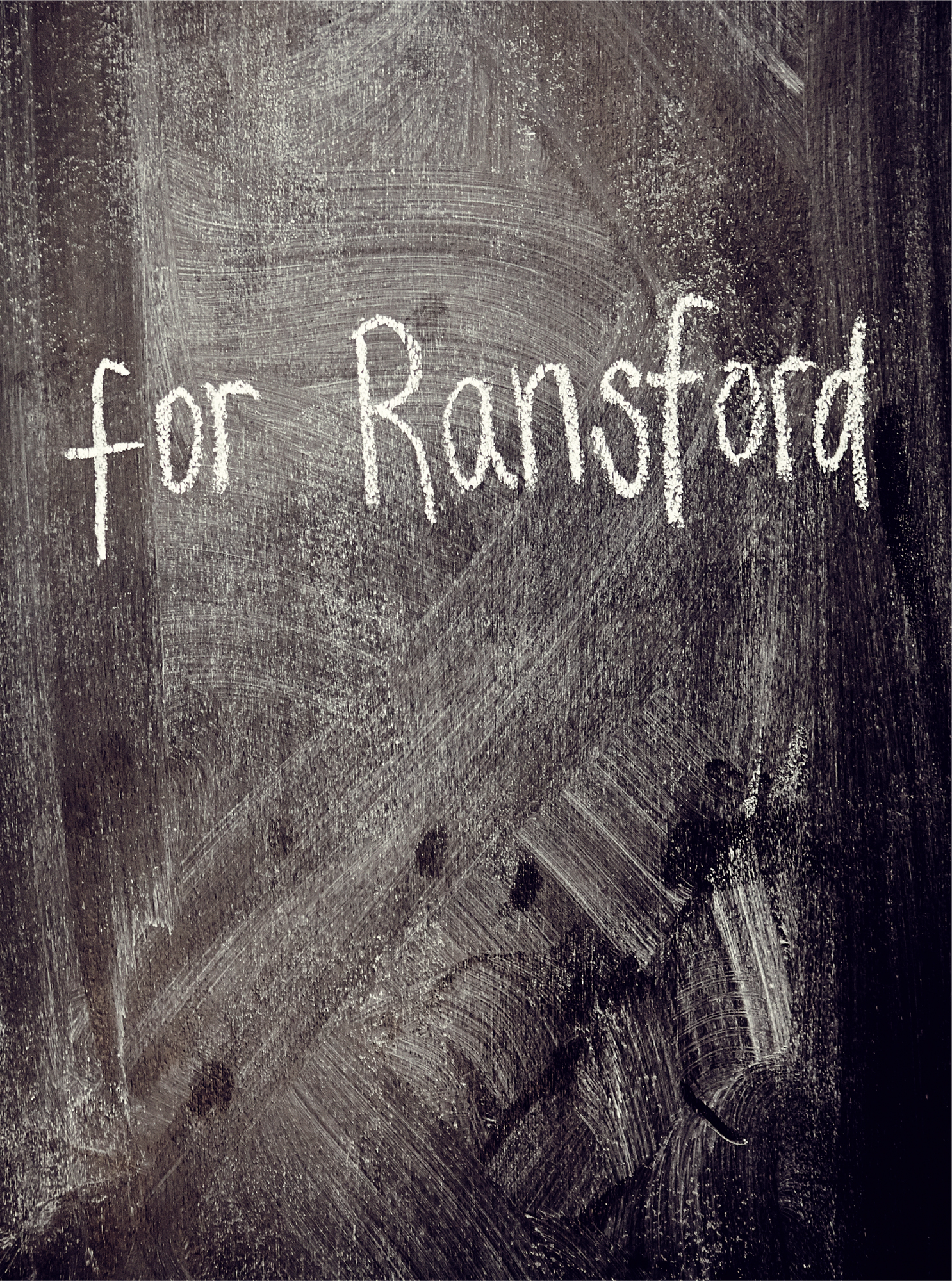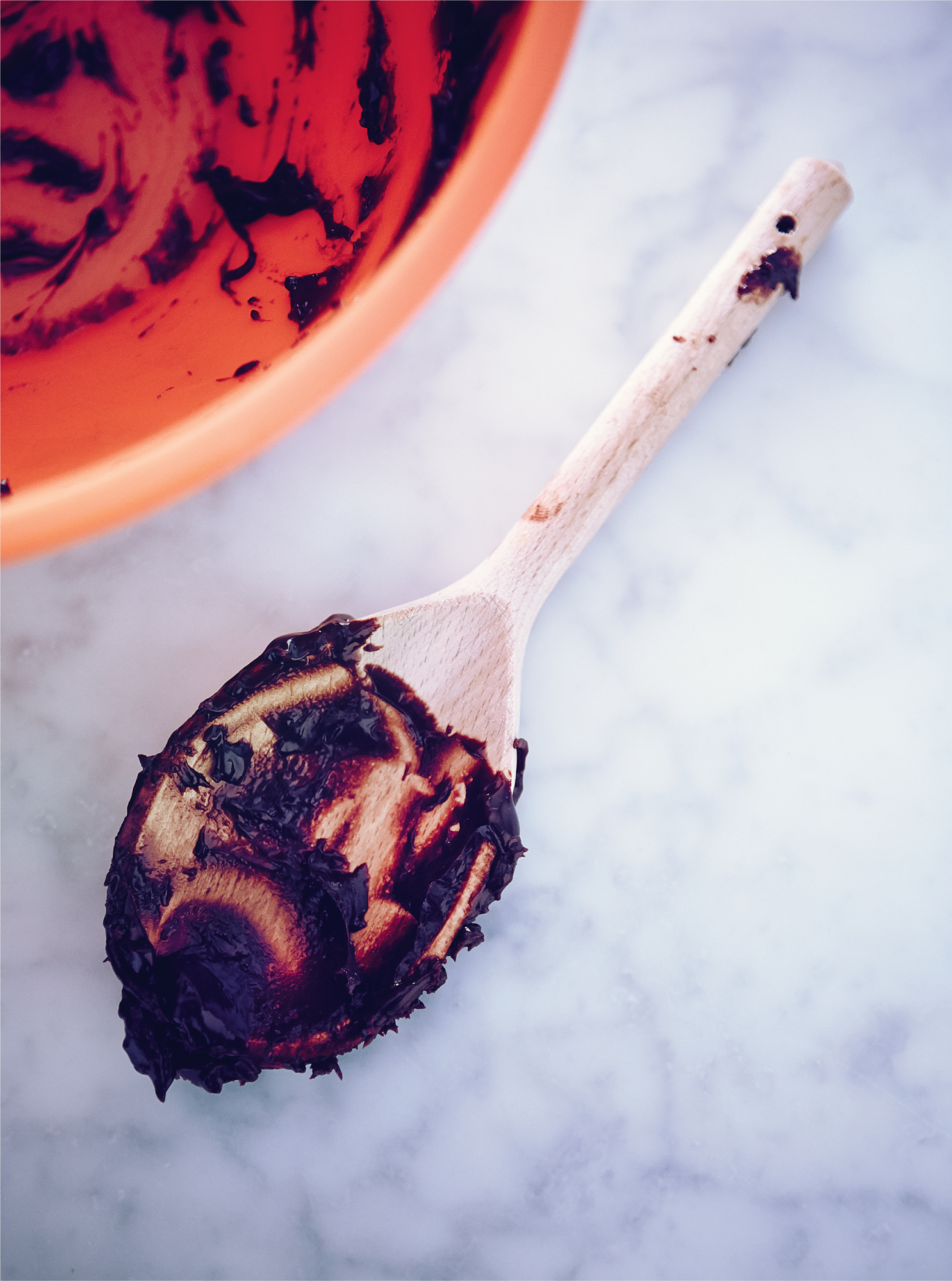CONTENTS
LIST OF RECIPES
ABOUT THE BOOK
Crumb is about flavour, first and foremost a celebration of the simple joy of baking. Rubys recipes delight in new tastes and combinations, as well as the rediscovery of old favourites, to create food that is exciting without ceremony or pretence.
In a delicious blend of practicality and creativity, Ruby encourages novices and seasoned bakers alike to roll up their sleeves and bake even if they dont have the proper equipment or know-how. From Lemon & Marzipan Cupcakes and Rye Caraway Bagels, Rose & Burnt Honey Florentines, Croissants and Custard Doughnuts, to Butternut Squash & Mozzarella Tartlets and Sticky Toffee Pudding, these are recipes that will quickly become some of your best loved. With writing to be savoured as much as the recipes, tips and techniques to guide you and plenty of ideas for variations, this is baking book to be inspired by, to read and cherish.
ABOUT THE AUTHOR
Ruby Tandoh entered Great British Bake Off aged just twenty and in the first year of a Philosophy and Art History degree at UCL. She quickly impressed with her creative approach to ingredients and flavour taking precedence over decoration.
Ruby is now a weekly food columnist in the Guardian and a monthly columnist at British ELLE. Raised in Southend, Essex, she lives and bakes in north London. She blogs at rubyandthekitchen.co.uk and tweets at @rubytandoh.
Theres a lot more to baking than meets the eye. Millions of air bubbles suspended in a bowl of beaten egg whites can make a meringue melt on the tongue. Theres science behind the deep brown crust of a brioche loaf and the tenderness of a pastry shell. Just a few degrees can nudge a pot of boiling sugar from sweet syrup to caramel (or to bitter cinder, if youre unlucky). Ive taken great care here to explain the whys and hows of baking, in the hope that this will give you the confidence to get started and adapt recipes to suit your tastes and preferences.
But science alone wont bake a cake. It cant replicate the feeling of cool pastry under your fingertips or completely describe the consistency of the perfect custard. Something happens between the numbered steps of a recipe and the end result that cant be predicted or prepared for. This is where baking soars clear of plain chemistry. Its not the kind of thing that can be dissected under bullet-pointed headings or jargon it has to be witnessed first-hand. For that reason I urge you to get stuck in, make a mess and dont be squeamish about getting your hands dirty. Enjoy the sensory pleasures that baking has to offer, from the exertion of a long knead to the crackle of a cob loaf cooling on the countertop. Youll soon find that the processes of baking are every bit as exciting as tucking in to the finished product.
This sensuous side of baking is about more than just hedonism. A finger gently pressed into a rising loaf can tell you whether its ready for baking; a piece of dough is well kneaded if you can stretch it so thinly that, when its held up to the sun, you can almost see straight through it. Baking isnt just about the tasting: prod, sniff, listen to and squeeze your food. This is not baking by rote.
The recipes in this book arent grand or highly decorated: their roots lie in the thrill of a new ingredient, or the comfort of a familiar food. They aim to please, rather than to impress. I hope that theyll make it to your table over and over again. I may digress at points, singing the praises of blackcurrants or writing an ode to doughnuts. I make no apologies for this: I bake for the love of it, and I hope that you will, too.
INTRODUCTION
Crumb started long, long before it was bound into the book you hold now. Perhaps the story begins with childhood birthday cakes, or at three years old felt-tip pen clutched between my stubby fingers as I circled each and every dessert in my parents illustrated cookbook. Maybe it was The Very Hungry Caterpillar so well-thumbed that its pages wore thin at the edges or Bruce Bogtrotters chocolate cake in Matilda. Later there were food supplements torn out of newspapers and messily archived, lunchtime feasts in the school canteen, homemade bundles of fudge and a whole summer spent rereading the Great Hall feast scenes in Harry Potter. Teenage romances played out against a backdrop of cake: to charm, to celebrate, to appease, and to soothe the hurt of the break-up.
It could be that this book started while I was at university, at the Christmas market baking stall that I spent three months preparing for and made 30 from. Or maybe it was in a Lisbon backpackers hostel, where a cheesecake landed me a kitchen job and where, from that point onwards, I spent every second of each day jotting down recipes, writing shopping lists and planning menus in what felt like a dream come true. Then again, it couldve been in the park at Belm, eating the fabled pasteis de nata that the penny finally dropped.
I was living in a dank London flat when I saw a TV baking show and wondered whether it was something I could do. Perhaps the book really began to take shape there: in the pages of scrawled notes on baking theory and chemistry that I made in a bid to learn all that I needed to know to survive in the competition. Before long, I was spending my weekends filming, during which some of the recipes in these pages began to crystallise. Notes still stored on my phone (try coffee & blackcurrant. do washing. make croissants) are the reminders of this baking storm.
By the time that The Great British Bake Off began to air, I had dozens of books of notes: paeans to profiteroles, half-finished recipes, flavour combinations, diary entries fondly recounting good meals, sketches of cakes, breads and biscuits, and scores of shopping lists. This book is built from those musings, experiments and memories. Its the distillation of my obsession with food. Its been a pleasure.
GETTING STARTED
Theres a misconception that baking is different from cooking. I hear friends sincerely proclaim that they can cook but not bake, or bake but not cook, as though it makes any sense to abstract one from the other. Baking is cooking. If you enjoy food if you can operate an oven and follow a recipe youre most of the way there already. Dont overthink it, and dont assume the worst before youve even got started.
That said, Ill admit that the equipment, methods and vocabulary of baking can be daunting if youre new to it. To take out the guesswork, Ive made a note of some of the baking-specific terms used in this book, below, along with a few words on ingredients and kit. If youre a seasoned baker, just head straight to the recipes youll find that theres a mix of easier and more involved recipes in each chapter, and a progression through the book from familiar cakes to meringues, tarts and pastries.

